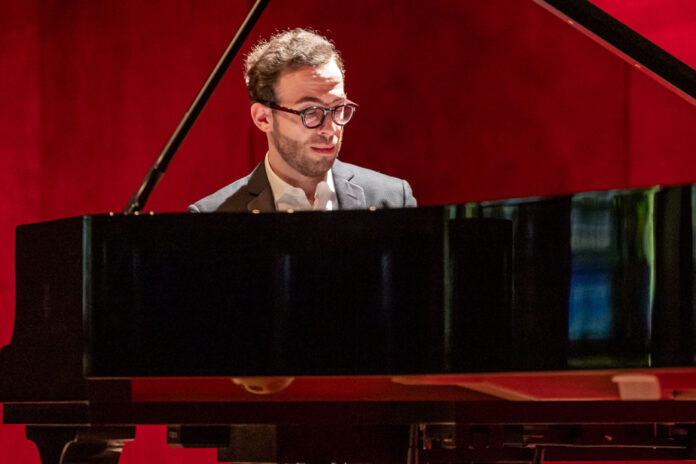Disappointment, on Thursday, to learn of the cancellation of pianist Sergei Babayan at the Bach Festival in favor of an – as far as we are concerned – illustrious unknown. Called in as reinforcements, the young Georgian pianist Nicolas Namoradze largely saved the furniture in the Bourgie Room.
Babayan’s recital, which gave us a memorable first volume of Bach’s Tempered Clavier two years ago, was to be one of the highlights of this festival. It was a bad flu which, we are informed, kept him confined at home. It’s only a postponement, especially since the musician is a regular at Montreal concerts.
At 31 years old, Nicolas Namoradze is already quite a phenomenon. After growing up in Hungary, he studied piano at the Juilliard School before winning the renowned Honens competition in Calgary in 2018. Active as a composer, he has also done advanced studies in neuropsychology related to musical performance.
It is a shame that almost half of the spectators chose to ignore Namoradze who, if his biographical sketch is to be believed, often sells out audiences around the world. They missed a recital of rare distinction.
Distinction in the very “intellectual” choice of the program. If the second part was devoted to the great Sonata in B flat major, D. 960, by Schubert, the first gave some space to the hero of the festival with an extract from The Art of Fugue and the French Suite No. 1 in D minor, BWV 812, but also to one of the “celebrated” of the year, Ligeti (it is the centenary of his birth), with the delicate Study no. 11, “In suspense”, and to Rachmaninov, one of the favorite composers of the replacement pianist.
Rachmaninov-Namoradze, we should say, since it is, on the one hand, a paraphrase of a melody by the Russian composer, and on the other hand a transcription of the Adagio from his Symphony No. 2 in E minor, opus 27. From the first notes in the high register of Memories of Rachmaninoff’s Georgian Song, the pianist makes us listen with delight to taste the magnificent colors he extracts from the great Steinway.
A specialist in mindfulness in musicians (this is his specialization in neuropsychology), Namoradze applies to concerts what he studies in the laboratory. We never have the impression of a hand-to-hand combat with the instrument, but more of an empathetic tête-à-tête always open to what the spontaneity of the concert can bring out.
The pianist, however, has the fault of his qualities. In the more rhythmic pieces, the concern for singing, which almost abolishes the bar line in the first two movements of the Schubert, considerably limits the rebound of the pulsation, as in the Courante of the Suite française, the Counterpoint VI of L’art of the fugue or the Scherzo of the sonata. But the musician fully embraces his approach and we can only be impressed by the power of his proposition.
Very generous, Nicolas Namoradze offered three encores, a very strong one, the Sonata no. 4, op. 30, by Scriabin, a short piece by the latter (which we have not been able to identify) and Gymnopédie no 1 by Satie.















